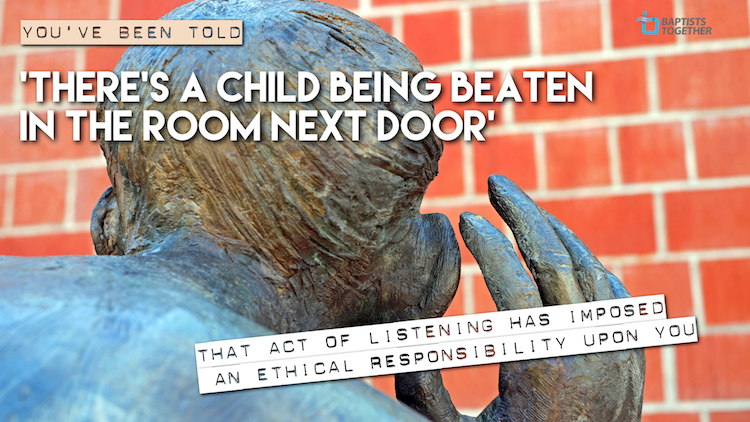16th June 2017

In September 2014 I accepted the invitation to deliver the travelling Whitley lecture in 2018. Sadly, I had to disabuse my daughters of the idea I would be on a sell-out tour with a bus, a bunch of burly roadies, and adoring fans at each new venue. In actual fact, the Whitley lecture is intended to encourage Baptist scholarship, and the lecture is delivered at Baptist Colleges and other venues, typically to small audiences of enthusiasts, but it is not exactly a route to stardom.
As soon as I accepted the invitation, I started thinking and praying about what I should choose to speak about. My real desire was that I might be able to deliver something that is of use to the churches. At the time, I was finishing my PhD on aspects of humour in Kings, and it didn’t seem to me that this was the subject the churches most needed to be blessed with. If anyone reading this is clamouring, ‘No, no, this is exactly what my church needs to spark our mission!’ then you can buy my book Reduced Laughter from Amazon for a mere £85.
But one issue that was bugging me, as I know it does others, is the small matter of violence in the Old Testament. The issue had become very live for me a few years previously (before I was in ministry), when our church youth worker sent me an email asking for my help with a young person. She was in danger of losing their faith, the email said, because of the episodes in the Old Testament where God appears to command violence. What could be said to help her? As a result, I wrote my Masters dissertation on the issue, and while I felt that I had found some useful things to say about it, I knew that there was so much more that still needed to be explored.
And the subject continues to be pressing. If I had a pound for every time I’ve heard someone speak of the God of the Old Testament being different from the God we meet in the New, I’d be – well, let’s just say that I’d be on a higher salary than my current stipend.
But what angle should I take in the lecture? Well, to some extent, this is a matter I am still musing on as I come to write it. But I’ve decided the broad question I’m going to try to address, and it concerns the ethics of reading Old Testament narratives.
We all know that our speech, just like our actions, carries ethical content. James tells us that ‘no human being can tame the tongue. It is a restless evil, full of deadly poison.’ But listening and reading have ethical content, too. Consider this scenario: you are sitting in a room and someone comes in saying, ‘There’s a child being beaten in the room next door.’ That act of listening has imposed an ethical responsibility upon you, because of the content of what you have heard. Literary theorists call those words a speech-act. It’s language that does something.
In my opinion, the Old Testament narratives of violence are a speech act in this sense. They have been read in many different ways over the years. Sometimes they are read indifferently, casually. This, I think, is to fail to understand that the reading of them imposes an ethical requirement upon us. Sometimes – and I may write a bit about this in a future blog – they have been used to justify contemporary acts of violence. Here, they are clearly functioning as a speech-act. But is it as the text intends? And is it Christian?
So how do we read these narratives ethically? What imperatives, if any, do they press upon us? This is the subject I hope to address in the Whitley lecture next year. And I’ve been asked, as I prepare, to blog about it from time to time. This is an interesting challenge. I’ve got a narrow line to walk – I don’t want to offer too many half-baked notions, but nor do I want to steal my own thunder by giving out the whole content of the lecture in advance. What I hope to do is outline some of the questions I’m considering, and perhaps talk about some of the theorists I’m interacting with. And I welcome your input as I think and wrestle and pray and write. So if you have comments about anything I say, or omit to say, please get in touch. paynterh@bristol-baptist.ac.uk. Thank you for reading, and I look forward to making this journey together.
This blog is part of series, please click here to read more.
For more about the Whitley lecture.
The 2017 Whitley Lecture is entitled the
The Pioneering Evangelicalism of Dan Taylor (1738-1816) by Richard Pollard, Minister and Team Leader, Fishponds Baptist Church, Bristol. It is available from
Regent's Park College.
The 2016 Whitley Lecture was
Church Without Walls: Post-Soviet Baptists in the Ukranian Revolution 2013-14 by Joshua Searle, Tutor in Theology and Public Thought and Assistant Director of Postgraduate Research at Spurgeon's College
.